 Q (Katrina Gray): Hi, Doug Holder. First things first: you’re the poet and publisher, not the Republican representative of Florida’s 70th district, right?
Q (Katrina Gray): Hi, Doug Holder. First things first: you’re the poet and publisher, not the Republican representative of Florida’s 70th district, right?
A (Doug Holder): Yes–I know about that guy. I first ruled “Doug Holder” on Google, but then he hit the scene and we split it half and half.
He is a former real estate agent and very conservative– I am a poet, teacher, and mental health worker– got 10 years on the guy, and we look nothing a like. I never liked Florida–hate the heat–and I swing more to the left.
I see you’re new here on Fictionaut, but already you’ve taken it by storm. What (and who) drew you to the community, and what do you think about it so far? Dish it out; we can take it.
Novelist Paul Steven Stone formally invited me to join the group–he has been a member for awhile. Susan Tepper, another novelist, and a well-respected Fictionaut member alerted her horde of fans and they signed up for the group.Paul is an interesting cat–he is the Creative Director for W.B. Mason a big office supply firm here in Boston, and came up with the brand “Who, but W.B. Mason?” He is the author of the novel Or So It Seems. Susan I met through my friend Gloria Mindock, the founder of the Cervena Barva Press in my neck of the woods Somerville, Mass. Mindock is a member of Fictionaut. Susan is a well-known writer in New York City, the co-author of What May Have Been: Letters of Jackson Pollock & Dori G, as well as our Fiction Editor at the Wilderness House Literary Review. She recently asked me to be a Small Press panelist at Hunter College in New York–had a great time!
What I like about Fictionaut is that it has a serious look–a literary format. If you visit you don’t get the feeling you are at some piker site–and the quality of the members is impressive of course. I have gotten good feedback about my work already–and I haven’t experienced any unprofessional nastiness.
Now, on to the reason we’re sitting down here together: the Ibbetson Street group. What sets Ibbetson Street Press apart from others? And how did you get so many group members in less than a month? I’m impressed.
Well, I hope besides Susan’s help, people joined because they know about our independent press and literary magazine “Ibbetson Street.” We were founded in 1998 at a Bagel Shop in Cambridge, Mass. by me, my wife Dianne Robitaille, and my friend Richard Wilhelm. We have published over 80 poetry titles: both chapbooks and perfect bound editions, and 29 issues of Ibbetson Street. For the most part all of this has been funded by ourselves; my wife works as an R.N and I teach at Endicott College in Beverly, Mass and Bunker Hill Community College in Boston and work as Mental Health Counselor at McLean Hospital in Belmont, Mass. We are now affiliated with Endicott College and have an office there, but before this we never applied for grants, non-profit status, etc… We survived by hustling and devoted ourselves to creating a literary community for people outside of the academy. We believe in grassroots literary activism, and Steve Glines, Harris Gardner and I founded the Bagel Bards, a literary group affiliated with Ibbetson Street that has been meeting every Saturday morning since March, 2004 at the Au Bon Pain Cafe in Davis Square, Somerville. We have everyone from professors to homeless people, young and old; we are open to anyone who is interested in writing. We put out a year anthology and have an online magazine. So I think we are more than about publishing–we are about community.
You know what else impresses me? Your CV. You ran poetry groups at McLean Hospital, where Sylvia Plath, Anne Sexton, Robert Lowell, and David Foster Wallace all spent time. What do you see as the link between creativity and mental illness? Is it a chicken-and-egg thing, where one causes the other?
Many of the poets you mentioned suffered from Manic Depressive Illness. Studies have shown that writers and creative people have a higher incidence of mental illness and even suicide. In fact of all writers poets have the shortest life span–go figure? Probably because they make the least money! I have worked at McLean Hospital for almost 30 years and have run poetry groups for patients on and off for many years there. Researchers are finding that artists, creative people, have certain structures and chemistry in their brains similar to Schizophrenics. Mental illness maybe latent in many creative people, and since there is so much introspection on the part of poets for instance- going near the abyss and all that jazz–that this may be a trigger. Still it is a very gray area–much to be researched. But the romantic notion of the “Mad Poet” is just that romantic--it is a harrowing disease and I don’t think anyone would want to go through with it in the name of art. Plath wound up with her head in the oven, Sexton died of asphyxiation in her garage, with a bottle of whiskey by her side– Lowell died of a heart attack at 60 in the back of NYC cab with a picture by Lucien Freud by his side–it does a number on you.
What is it about the Boston area that inspires poetry? The history, the legendary institutions? The people? The chowder?
I had enough chowder to last a lifetime. I love the tradition of Boston/Cambridge. I mean all the great poets who were here: T.S. Eliot, Longfellow, E.E. Cummings, Robert Lowell, Ann Sexton, and the list goes on. We have a great poetry book- store– the famous Grolier Poetry Book Shop in Harvard Square run by my friend Ifeany Menkiti and formerly owned by Louisa Solano and before that Gordon Carnie. Solano told me many stories about people who passed through like Kerouac, Seamus Heaney, Allen Ginsberg, and many others. I live in Somerville, Mass. ( It is right next to Cambridge and Boston) that I call the “Paris of New England” because of all the writers who reside here. Guys like poet Lloyd Schwartz, novelist Claire Messud, Steve Almond, poet Joe Torra, poet Afaa Michael Weaver, poet Harris Gardner, writer Pagan Kennedy live here and the list goes on. In 2003 I founded the Somerville News Writers Festival with Timothy Gager (A Fictionaut member) and we always have a great roster of writers and poets from Franz Wright to Junot Diaz, all who live in the immediate area. I also am the arts/columnist for The Somerville News, and I have had the opportunity to interview countless authors, etc… like Robert Creeley, Elizabeth Swados, Sam Cornish, Hugh Fox, Michele Hoover, Tom Perrotta, Steve Almond, Richard Hoffman, Clayton Eshleman… it is a jumping place to be! I got my M.A. in Literature at Harvard University, and studied with some top shelf folks so I am well aware of the literary traditions of the area. There are over 100 colleges in the immediate vicinity which infuses such a rich cultural sensibility to the place. I feel lucky to have lived here as long as I have.
What kind of submissions make your heart go *zing*?
Well as Auden said anything that makes me cut myself while shaving. I can usually tell if a poem is going to take me somewhere after the first few lines. I love detail, arresting imagery, inventive use of words, surprises, humor–all the usual suspects.
Now I’m going to draw on your wisdom. You’ve been writing poetry for decades. How have you seen it change over the years, and what direction do you see it headed?
Well I have seen the growth of online magazines, etc.. I prefer print, but I think they both will co-exist in the future. I think we will see more poetry and music mixes. I am also seeing more plays written in verse. I think the Barbarians will rush the gates of the academy– the universities, and as a result the small presses, and the grassroots literary movements will take on a new and more important role. Just look at the growth of Print- On-Demand, and Self-Publishing–I have been asked to talk about this new trend at various venues–I say it is a new age for publishing and poetry!
Katrina Gray checks in with Fictionaut groups every Friday. She lives in Nashville with the writer John Minichillo and their lovechild. She is the editor-in-chief of Atticus Review, and she blogs about mostly non-literary things at www.katrinagray.com.
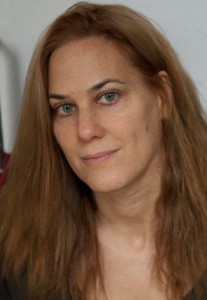
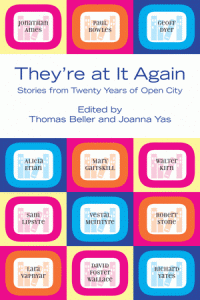
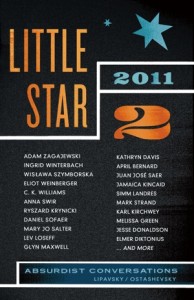
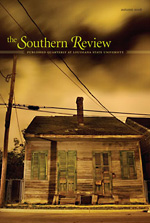
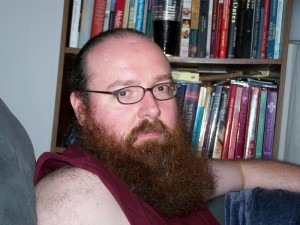
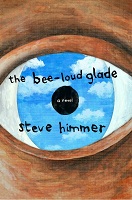 Fictionauters have a lot to celebrate this month. One of
Fictionauters have a lot to celebrate this month. One of